Need help understanding the purpose and utility of Amazon Posts? We’ve got you covered!
What are Amazon Posts?
Amazon Posts are social media-style posts with product images and captions.
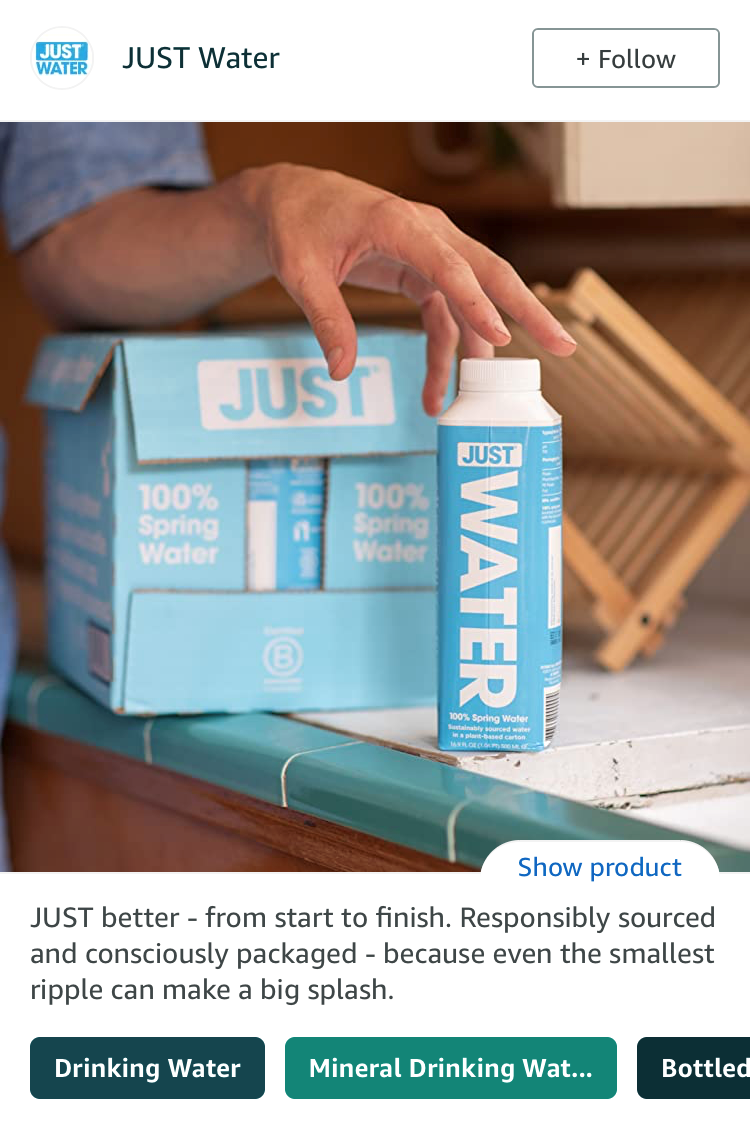
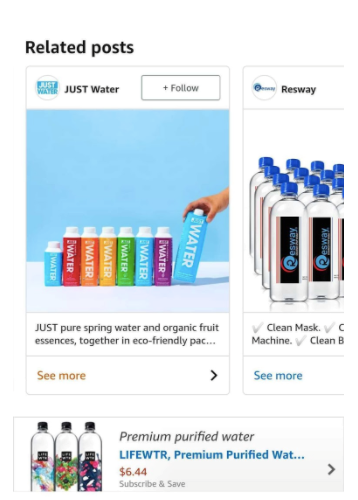
On the left: Example of an Amazon Post
On the right: Example of a Post on the product detail page
Where do Amazon Posts appear on Amazon?
Product detail pages on the Amazon mobile app. At this point in time Posts don’t appear on desktop, however, it’s highly likely that they will in the future.
By clicking on a Post, shoppers get redirected from the product detail page to a ‘Related posts’ feed. On this feed shoppers will be able to browse through content based on search tags, much like Instagram.
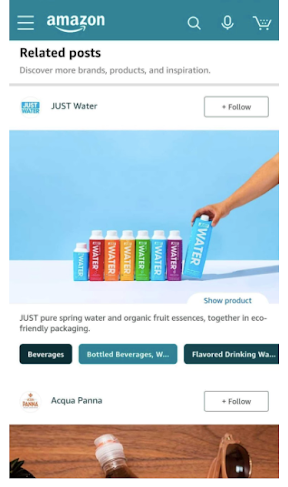
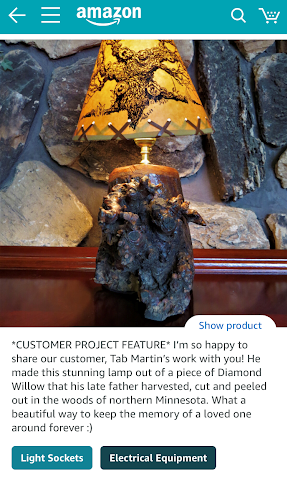
On the left: Screenshot of the ‘Related posts’ feed
On the right: ‘Show product’ link in blue underneath the product photo
“Like Amazon Posts, Sponsored Brands Video Ads started on the Amazon mobile app, but quickly got rolled out to desktop. I anticipate Posts will follow the same path.”
– Kiri Master, Bobsled CEO

Who can create Amazon Posts?
Amazon.com Brand-Registered Sellers with storefronts through the Advertising Account. Unfortunately, there is no way to automatically import your Instagram feed to Amazon. All the Amazon content guidelines can be found here.
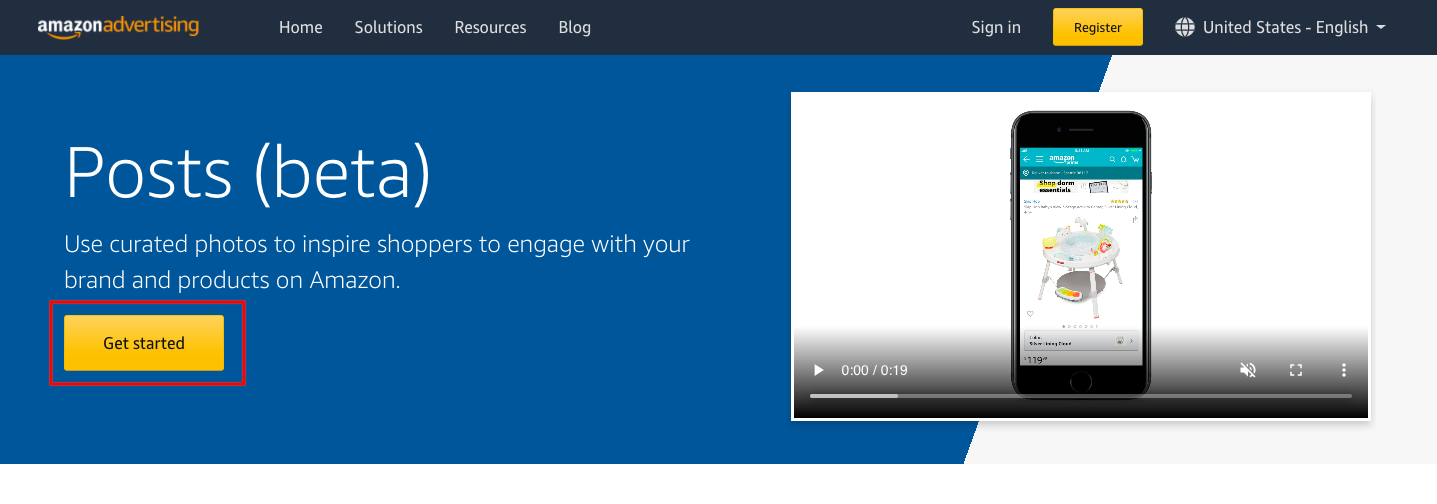
Step 1: Access Post Dashboard through the Amazon Advertising Account

Step 2: Access Posts Dashboard & Create a Post
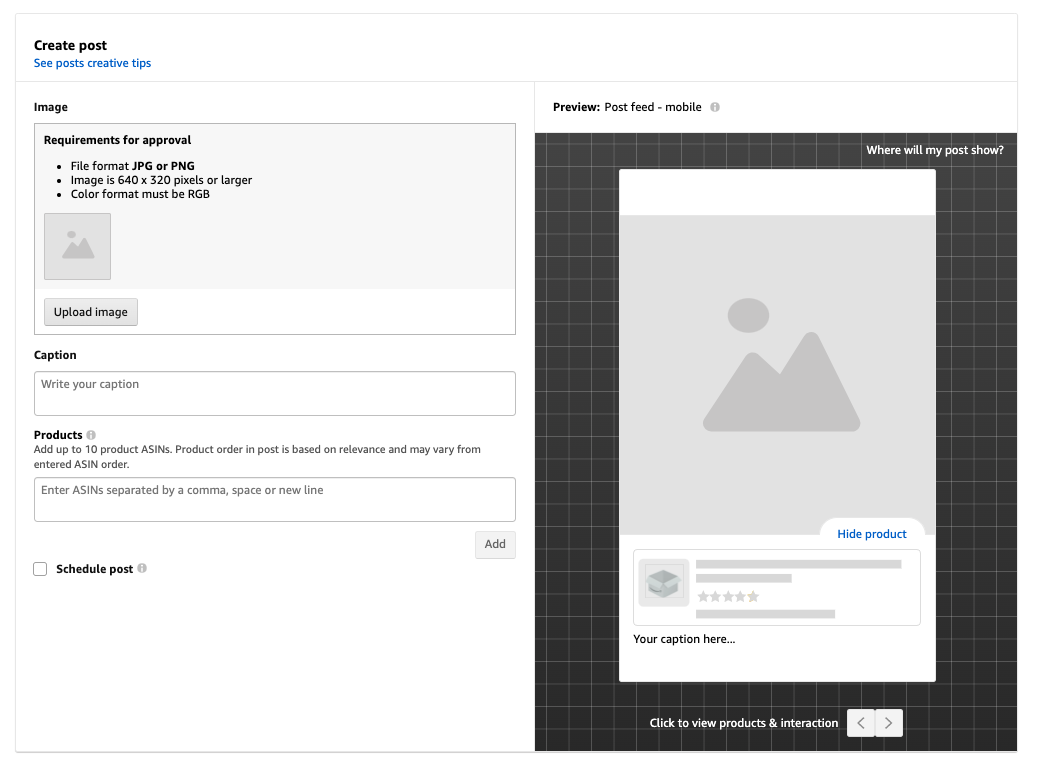
Step 3: Create a Post Dashboard
Amazon SEO Strategy – Bobsled’s Crash Course
How are brands using Amazon Posts?
In essence, Posts are simply another marketing tool that can be used to promote your product on the product detail page. You could select a ‘lifestyle’ image, or something more product-specific. With the caption, you can include a customer testimonial, or perhaps address a common FAQ.
You can include multiple products (up to 10) within a single Post. If a product comes in multiple colors you might want to add all possible variations to a single Post. Brands with small catalogs should create a Post per child ASIN. Brands with big catalogs may want to limit it to a Post per Parent ASIN.
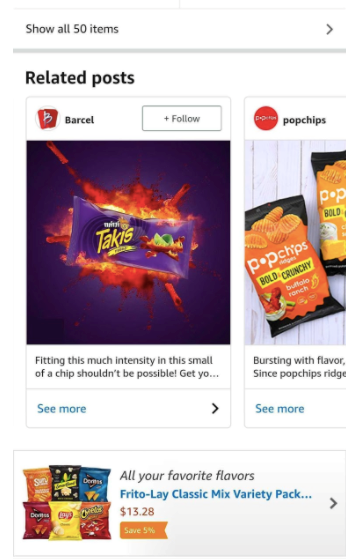
It’s important to note that although your Posts will be displayed on your own product detail pages, direct competitor Posts will also appear (see the below example), as Amazon is trying to provide the customer with all of the best product options based on their search query.
Therefore, brands can use Posts to ‘attack’ competitor detail pages. At the same time, they’re being used to ‘defend’ their own detail pages from competing offerings.
On the right: In this example, Barcel’s own Post is appearing as the first result on the Posts section of the product detail page for their Takis chips. However, a competitor, Popchips, is the second result.
When is the best time to post?
Much like the algorithms on other social media platforms, Amazon Posts seem to favor brands that keep it fresh and share new content regularly.
Amazon provides primitive, downloadable performance data for your Posts.

Above: Amazon Posts performance data
And similar to other social media tools, you can schedule your Posts for a certain day and hour ahead of time.
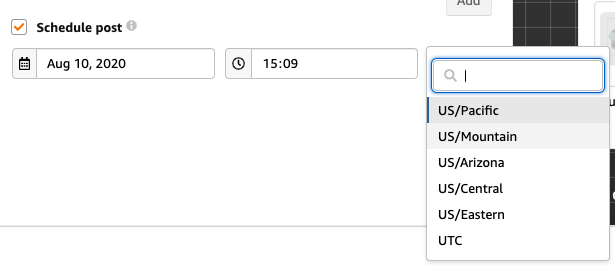
Above: Select exactly when you want each new Post to go live in your Seller Central dashboard.
“It’s still early days for Amazon Posts. But I’m encouraged by early results. Brands are already creating this type of content for Facebook and Instagram, so adding Amazon is a no-brainer.”
– Maria Zarkova, Bobsled Account Specialist
Why should my brand start doing Amazon Posts?
1. Customize your Amazon presence. A big drawback of the Amazon channel is the aesthetic uniformity of the marketplace. Your superior product will be displayed in roughly the same format as inferior offerings. Therefore, brands need to jump on opportunities to tell their brand story in a unique way and stand out from the crowd. Posts are definitely an easy way to spice up your Amazon presence. Another example would be Amazon Live.
2. Customers are shopping more on social media. Ten years ago social media was seen as a place to share photos with friends. Now it’s a hive of media and commerce. If your brand has seen success acquiring customers via social media channels, investing time into Amazon Posts is a no-brainer. Although Posts can’t compete with the audience volume of Instagram or Facebook, they reach browsing shoppers where a purchase is literally one or two clicks away, unlike where there are more barriers (redirected to external website landing page, credit card details required etc).
3. Posts are free (for now). There’s no limit on how many Posts a brand can push out into the world. Amazon may monetize this type of content in the future, so why not figure out what works and what doesn’t while it’s free?
4. Amazon shoppers can choose to ‘follow’ your brand. In theory, followers should receive notifications when you release new content or products, but this hasn’t been observed here at Bobsled yet. Brands also can’t track the number of followers they’ve acquired. Amazon will undoubtedly improve the functionality as the program matures.
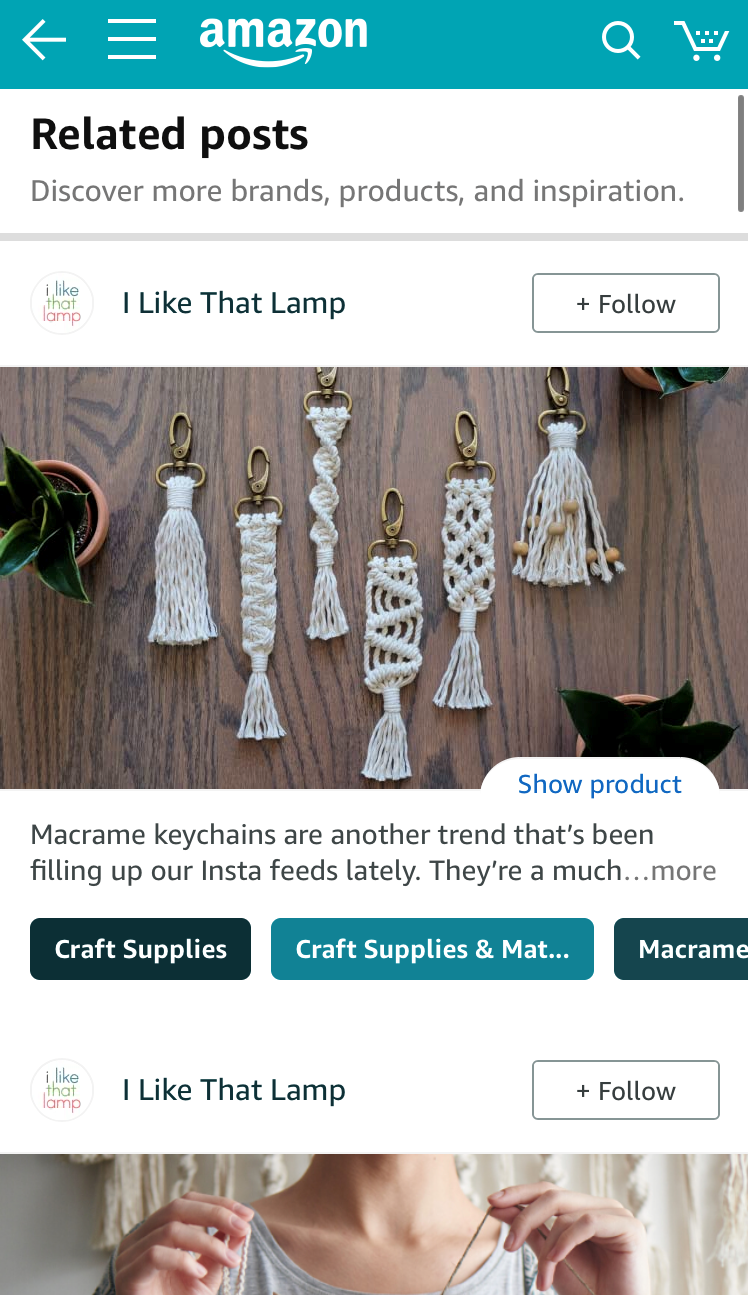
On the right: The white ‘Follow’ button appears next to the brand name on the Posts feed
4. Directly helps conversion rates. Similar to A+ Content, the Bobsled team has observed an uptick in conversion percentage from brands that are utilizing Amazon Posts. Customers appreciate additional product images and information as it helps them make a more informed purchase decision.
6. Indirectly helps SEO. Posts don’t automatically boost your product on the search results page. But they do improve on-page conversion percentage, and this will help boost your organic ranking over time.
NEED HELP with Amazon Posts?
Book a free consultation with the Bobsled team below.
{{cta(‘9b801dcc-91fa-4ab8-a3e5-fdd1109f7b34’)}}
